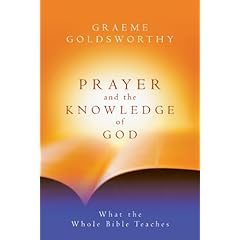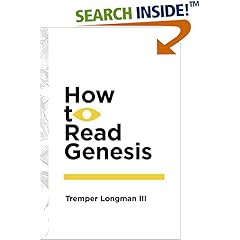It has been suggested to me that the reference to childbearing in 1 Timothy 2:15 places Paul’s words in 1 Timothy 2:12 (that he does not permit women to teach or exercise authority over men) in the context of the home. This interpretation was accompanied by the assertion that as long as the senior pastor is a male, women can teach under his authority with the approval of their husbands.
If this interpretation is correct, what biblical reason do we have for not permitting a woman to be the senior pastor of a church?
1 Timothy 2:12 is the text on which the view that only men should pastor rests. What would keep someone who takes this view from coming to the conclusion that, since 1 Timothy 2:12 applies in the home and not in the church, women can be senior pastors?
There are several indications in 1 Timothy 2 that show that Paul’s instructions here are not limited to what a man and a woman do in their home.
First, Paul’s appeal to Adam and Eve in verses 13–15 is not meant to limit what Paul has stated in verse 12 to the context of the husband and wife relationship in the home. Rather, Paul grounds what he has said in verse 12 about women not teaching men and not exercising authority over men in the pre-fall created order. Verse 13 begins with the word “for,” which indicates that Paul is now backing up what he just said in verse 12. He explains that women are not to teach or exercise authority over men because Adam was created before Eve (1 Tim 2:13). Verse 14 begins with the word “and,” indicating that Paul is now giving another reason for what he said in verse 12: Women are not to teach or exercise authority over men because Eve was deceived and became a transgressor (1 Tim 2:14). Verse 15 is not limiting the statement that women are not to teach or exercise authority over men to the context of the home, it is saying that even though Eve was deceived and became a transgressor, she can be saved through childbearing if she continues in faith.
Paul shows that verse 15 applies to women in general when he switches from the singular “she” (referring back to Eve in verse 14) at the beginning of the verse to the plural “they” in the middle of the verse. What is true of Eve is true of all women. They are not saved through the meritorious work of childbearing, but when by faith they embrace their role as women they show that they are born again. The most prominent way in which women embrace their roles as females is through childbearing, which men cannot do. But lest anyone think Paul is talking about women accomplishing their own salvation through childbearing, he adds, “if they continue in faith. . .” I take this to mean that childbearing is evidence that a woman has embraced her role as a woman, which is evidence that she has genuine faith. Verse 15 explains the manner in which Eve and her daughters can be saved, even though Eve fell to temptation. 1 Timothy 2:15 is not evidence that verse 12 only applies in the home, nor does it place these instructions in the context of the home rather than the church.
Second, we see that Paul is talking about what happens in public worship when he writes in 1 Timothy 2:8, “I desire then that in every place the men should pray. . .” The context does not change when Paul begins to talk about women in public worship in verse 9 (“likewise also . . .”). The words “in every place” probably refer to all places where Christians worship. This phrase, “in every place,” demonstrates that Paul is not limiting the instructions that follow to husband and wife relations in the home.
Third, in this context Paul instructs men to pray in public worship (2:8) and women to be dressed modestly and known for good works (2:9–10). The statement in verse 11, “Let a woman learn quietly with all submissiveness,” indicates that Paul is now addressing public teaching. When Paul is elsewhere dealing with women learning at home, he makes that clear. For instance, he adds the phrase “at home” in 1 Corinthians 14:35. In 1 Timothy 2:11, Paul might actually be advancing women by letting them learn in public. Is it likely, given his historical context, that he would allow women to teach men? It seems that 1 Timothy 2:11–12 gives a clear answer to that question. The statements in 1 Timothy 2:11 match the statements in 1 Timothy 2:12, as both verses deal with teaching/learning and submitting/exercising authority. Verse 11 states that women are to learn and submit, and verse 12 states that they are not to teach men or exercise authority over men.
Fourth, this letter is written to Timothy, but it becomes clear that Paul was addressing the church through this letter to Timothy. We see this in the concluding words of the letter, where the “you” in the benediction, “Grace be with you” (1 Tim 6:21) is plural, not singular. The letter is to be read in the church, and there is nothing in the context of 1 Timothy 2 that indicates that the prohibitions of 1 Timothy 2:12 do not apply in the church.
Fifth, when Paul addresses husbands and wives, rather than men and women in general, he makes it clear that he is talking about husbands and wives by qualifying these Greek words (the Greek term for “woman” can also be rendered “wife,” and the Greek term for “man” can also be rendered “husband”). In these other passages, Paul makes it clear that he is talking about husbands and wives by qualifying “man” or “woman” with words like “their own” or “your” so that it is clear that he is not addressing men and women in general but wives and husbands (see 1 Cor 14:35, “if there is anything they desire to learn, let them ask their husbands at home;” Eph 5:22, “wives, submit to your own husbands;” 5:25, “husbands love your wives;” Col 3:18, “wives, submit to your husbands;” 3:19, “husbands love your wives;”). Apart from words like “their own” and “your,” the terms “husbands” and “wives” could just as well be translated “men” and “women.” Unlike the passages just cited, there is no indication in 1 Timothy 2:8–15 that Paul’s statements apply only to husbands and wives. In 1 Timothy 2:8–15 Paul does not qualify the words “men” and “women” with words like “their own” or “your” because he is not talking about husbands and wives but men and women in general. Paul is addressing the way that women and men behave in public worship. He is not addressing the way that husbands and wives behave at home. The statement in verse 15 about women being saved through childbearing is about women embracing femininity. If Paul were addressing husbands and wives, or if verse 12 only applied to the home, he would say so (as he does in the other texts cited in this paragraph).
Paul has said, “I do not permit a woman to teach or exercise authority over a man,” and he does not qualify this statement by saying that women can teach men if the senior pastor approves, or if they have the blessing of their husbands. Such an interpretation can only stand if the interpreter himself qualifies Paul’s command by importing foreign data into the context, thereby distorting what Paul said.






